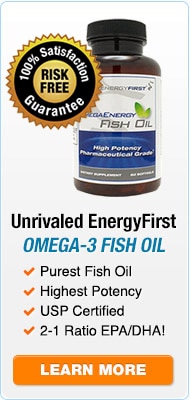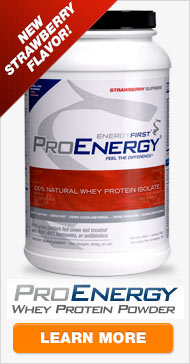As you may have noticed, we use Stevia to naturally and lightly sweeten our EnergyFirst products, such as our ProEnergy Whey Protein Isolate powders and Permalean protein bars. What is Stevia, though?
Stevia History 101
Stevia rebaudiana Bertoni, also known simply as Stevia, is a member of the largest family of plants, Asteraceae (which is also called the "sunflower family"). Its use as a sweetener for medicine and food is believed to go as far back as before the arrival of the Spanish in the 16th century.1
Unlike other artificial sweeteners, stevia is not only sweet. It's also safe. As far as its modern history goes, it has been documented as safe for use since the 1980s. A 2008 review by the Joint Expert Committee on Food Additives also approved Stevia as safe for use. There are positive safety opinions from other global food safety authorities as well, including the World Health Organization, the European Food Safety Authority, and the U.S. Food and Drug Administration. The Center for Science in the Public Interest also rates Stevia as safe.
Stevia Biology 101
Stevia is a natural, high-potency sweetener. It gets its sweetness from substances called steviol glycosides. These give Stevia a sweetness about 200 times greater than sugar. Since these glycosides cannot be metabolized by the body, it provides zero calories.
As aforementioned, stevia comes from a plant, an antioxidant-rich plant. Not a lab, thankfully. Much like tea, the sweet flavor in the stevia plant is released by steeping dried leaves in water. This is then filtered and further purified with either water or food grade alcohol (all of these being conventional plant extraction methods) to remove crude components of the plant.
Stevia has been studied for its effects on blood sugar levels and has shown beneficial and promising effects for glucose metabolism, especially in type 2 diabetes. 2 In fact, one study found steviosides and steviol directly act on the pancreas' beta cells to stimulate insulin action, thus making it a potential antihyperglycemic for diabetes. 3 Animal studies have also demonstrated its ability to increase insulin sensitivity. (Insulin sensitivity refers to when cells are more responsive to insulin and, thus, require less insulin to lower blood glucose levels).
What Else Makes Stevia so Sweet?
A 2015 review of several studies concluded that stevia is not cariogenic. Other studies have also suggested other therapeutic benefits of Stevia, including anti-hypertensive, anti-inflammatory, anti-tumor, and anti-diarrheal benefits. 5
While many non-nutritive sweeteners have been associated with cancer, what can be said of Stevia? It has been classified as noncarcinogenic.
Another benefit is for our planet. The production of Stevia is sustainable, requiring less land, water, and energy than what is needed to produce the same amount of sweetness in other sweeteners. 6
Uses
Stevia is now available in both powder and liquid form. Depending on the number of receptors on the tongue, stevia does have a slightly bitter aftertaste. However, its perception depends on what is being sweetened.
Since stevia is heat stable, it can be used when baking and it won't lose its sweetness. When baking, to replace sugar in recipes, it is generally recommended not to replace more than 1/2 of the sugar in the recipe with stevia.
References
1. Stevia Basics. International Stevia Council website.
2. Gregersen, S., Jeppesena, P.B., Holst, J.J., & Hermansen, K. (2004). Antihyperglycemic effects of stevioside in type 2 diabetic subjects. Metabolism, 53(1): 73-76. doi: 10.1016/j.metabol.2003.07.013.
3. Jeppesen, P.B., Gregersen, S., Poulsen, C.R. & Hermansen, K. (2000). Stevioside acts directly on pancreatic beta cells to secrete insulin: actions independent of cyclic adenosine monophosphate and adenosine triphosphate-sensitive K+-channel activity. Metabolism, 49(2): 208-14.
4. Chang, J.C., Wu, M.C., Liu, I.M., & Cheng, J.T. (2005). Increase of insulin sensitivity by stevioside in fructose-rich chow-fed rats. Hormone and Metabolic Research, 37(10): 610-6.
5. Ferrazzano GF, Cantile T, Alcidi B, et al. Is Stevia rebaudiana Bertoni a non cariogenic sweetener? A review. Molecules. 2015;21(1):E38.
6. Nutr Today. 2015;50(3):129-134.

























